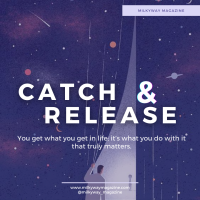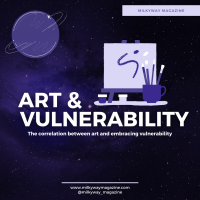
Picture this: you’re listening to one of your favourite artists and enjoying the tunes, when suddenly, you come across a piece of news stating that this artist has been found guilty with multiple sexual assault charges. What should we do in this situation? Should we delete all their songs and scorn them on Twitter? Should we listen to their songs only in secret? Should we do nothing at all? I’m going to try to weigh in on the age-old discussion of separating art from the artist to try and answer these questions, among others.
I’d like to begin by crossing off a big group of people involved in this argument,: people who have been dead for a long time. No one benefits or loses when I purchase an expensive Caravaggio painting, even though he’s a known paedophile and violent man. He’s been dead for centuries; the involved parties have all disappeared along with their families, so people like Picasso, Gaugan and H.P Lovecraft are not involved in this discussion. The matter is complicated, however, when the artist is dead, but their victims are still alive. I believe that giving them further exposure by being a fan is not necessarily a bad thing if one knows and decries their awful actions, since they’re not there to reap the rewards of fame anyway.
Now comes the real discussion: what do we do with artists who are still alive and kicking? I’d like to tell you about an artist from the genre I listen to most: Metal. Varg Vikernes is a black metal musician that is behind the band project Burzum – one of my favourites – who also wrote lyrics and played instruments for many other black metal bands. In the 1990’s, Varg burned many churches in his native Norway in an epidemic of church burnings across the country, but arson of religious buildings is the least of his crimes. He also killed another black metal musician in self proclaimed self-defence, but if so then why would he stab them 23 times? He was convicted with manslaughter and given 21 years in prison, where he espoused his neo-nazi and far right views on the internet.
So what do I do knowing all this about Varg? Well, I never wear his merchandise or even listen to his songs on platforms that give him money. Anytime I recommend his band to my friends, I make sure to tell them about his actions and what I do as well, and of course I don’t follow him on any social media platforms. This is an example of what people call informed consumption. For platforms like galleries or concert venues, don’t give them an opportunity. Know what the artist did wrong and try not to directly benefit them. If it’s a book, see if it’s in a local library. If it’s a painting, save it as a jpeg. If it’s a movie, pirate it if you have to. Anytime you recommend the art, stay aware of the artist, and warn people about the artist’s wrongdoings.
What about the fame aspect, then? Consuming an artist’s art is definitely going to make them more famous or at least keep their fame. When the art is genuinely good such as ,for
example, Woody Allen’s movies, it’s easy to just praise the art while denouncing the artist at every given opportunity. The goal will be to make them infamous and not famous. They will be known and watched closely, but no one will actually be fans of them aside from a few edgy contrarians. This is the case for most criminals. Sex offenders like R. Kelly and Kevin Spacey can’t benefit from their fame as no one even pays attention to them anymore aside from their lawyers and jurists. If the problem is with some opinion they have, the free market will make it so that platforms will not give them opportunities to espouse their views to avoid any association or endorsement. Remember Andrew Tate? Ever since his ban on most social media sites, his popularity has gone down rapidly. He was, of course, banned for “hismisogynistic views” (that doesn’t make sense), which is not a crime, but is still socially punishable.
Whoever goes against the norms, values and customs of a given society will be punished either socially or legally (most times both), but that doesn’t mean we need to punish their art along with them. There are various ways of consuming the art without being a diehard fan of the artist and we don’t need to like all the people we benefit from. This isn’t even always the case for philosophers as well. Arthur Schoepenhaur was a disgusting misanthropic individual, but his philosophy is a great way to understand why we do things we feel compelled to do. I don’t have to sing Arthur’s praises in order to read his philosophy.
However, these are all my opinions on the matter and other people may have better solutions and better reasons for their solutions.
Tell us what you think about this topic and hopefully we can start a (hopefully civil) discussion!
Writer: Abdelrahman Wael
Editor: Nour Diaa
Design: Malak Raslan






